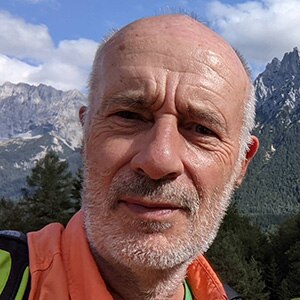Lothar Hennighausen, Ph.D.

Professional Experience
- Chief, Section of Genetics and Physiology, NIDDK, NIH
- Principal Investigator, NIDDK, NIH (1985-present)
- Post-doctoral fellow, Harvard Medical School (1983-1985)
- Ph.D., University of Cologne, 1982
- Diplom, University of Cologne, 1979
- B.S., Philipp University of Marburg, 1977
Honors (selection)
- Hans-Fischer Senior Fellow, Technical University Munich, Germany (2020)
- NIH Director’s award for outstanding accomplishments (2019)
- Keynote Speaker, FASEB Conference, Growth Hormone / Prolactin Family (2019)
- Director’s Award, NIDDK/NIH (2017)
- Orloff Award, NHLBI/NIH (2017)
- Keynote Speaker, Mammary Gland Biology Gordon Conference, Keynote (2016)
- Distinguished Lecture Series, Lady Davis Institute, McGill, Montreal (2012)
- Keynote Speaker, Graduate Research Symposium, Memorial University, St. John’s, Canada (2011)
- Plenary Speaker, Korean Society for Molecular and Cellular Biology, Seoul (2009)
- Member and Chair, Scientific Advisory Board, Georg-Speyer Haus, Frankfurt, Germany (2009-2017)
- Distinguished World Class Scholar, Korean Society of Science and Engineering (2008)
- Mercator Professorship, Deutsche Forschungsgemeinschaft (2007)
- Olof Pearson Award, Case Western Reserve University, Cleveland (2003)
- Humboldt Research Award, Alexander von Humboldt Foundation (2002)
- Humboldt Fellow, Alexander von Humboldt Foundation (1992)
- Speaker, National Press Club, Washington D.C. (1987)
Research Goal
Our long-term goal is to unlock the genetic logic that controls the genome and to understand the impact of single nucleotide polymorphisms (SNPs) in the Janus Kinase-Signal Transducer and Activator of Transcription (JAK-STAT) pathway contributing to autoimmune disease to support design of therapeutic interventions.
Select Publications
- Cell-specific and shared regulatory elements control a multigene locus active in mammary and salivary glands.
- Lee HK, Willi M, Liu C, Hennighausen L.
- Nat Commun (2023 Aug 17) 14:4992. Abstract/Full Text
- mRNA vaccination in octogenarians 15 and 20 months after recovery from COVID-19 elicits robust immune and antibody responses that include Omicron.
- Lee HK, Knabl L, Moliva JI, Knabl L Sr, Werner AP, Boyoglu-Barnum S, Kapferer S, Pateter B, Walter M, Sullivan NJ, Furth PA, Hennighausen L.
- Cell Rep (2022 Apr 12) 39:110680. Abstract/Full Text
Research in Plain Language
Cytokines are hormones that control many facets of our daily physiology and can cause disease when disrupted. Our research focuses on interferons and interleukins that regulate homeostasis of our immune system and are key in the fight against infections. We also investigate how the cytokine prolactin controls development of the mammary gland during pregnancy and milk production during lactation. Both, the immune cells and mammary glands are under the control of specific proteins, called JAKs and STATs, that shuttle the information from the cytokine bound to the cell surface to the nucleus where they activate very specific genetic programs. We have also identified mutations that alter the structure and function of the JAK and STAT proteins and thus derail the physiology of immune and mammary cells, sometimes with severe consequences. This research is conducted using tools of biochemistry, genomics, genetics and computational science, including machine learning and AI. For our research on immune disorders, including autoimmune diseases, we partner with community physicians and their patients.
Related Links
- Dr. Hennighausen's Curriculum Vitae (PDF, 320.92 KB)
- Dr. Hennighausen's Biographical Sketch (PDF, 105.7 KB)
